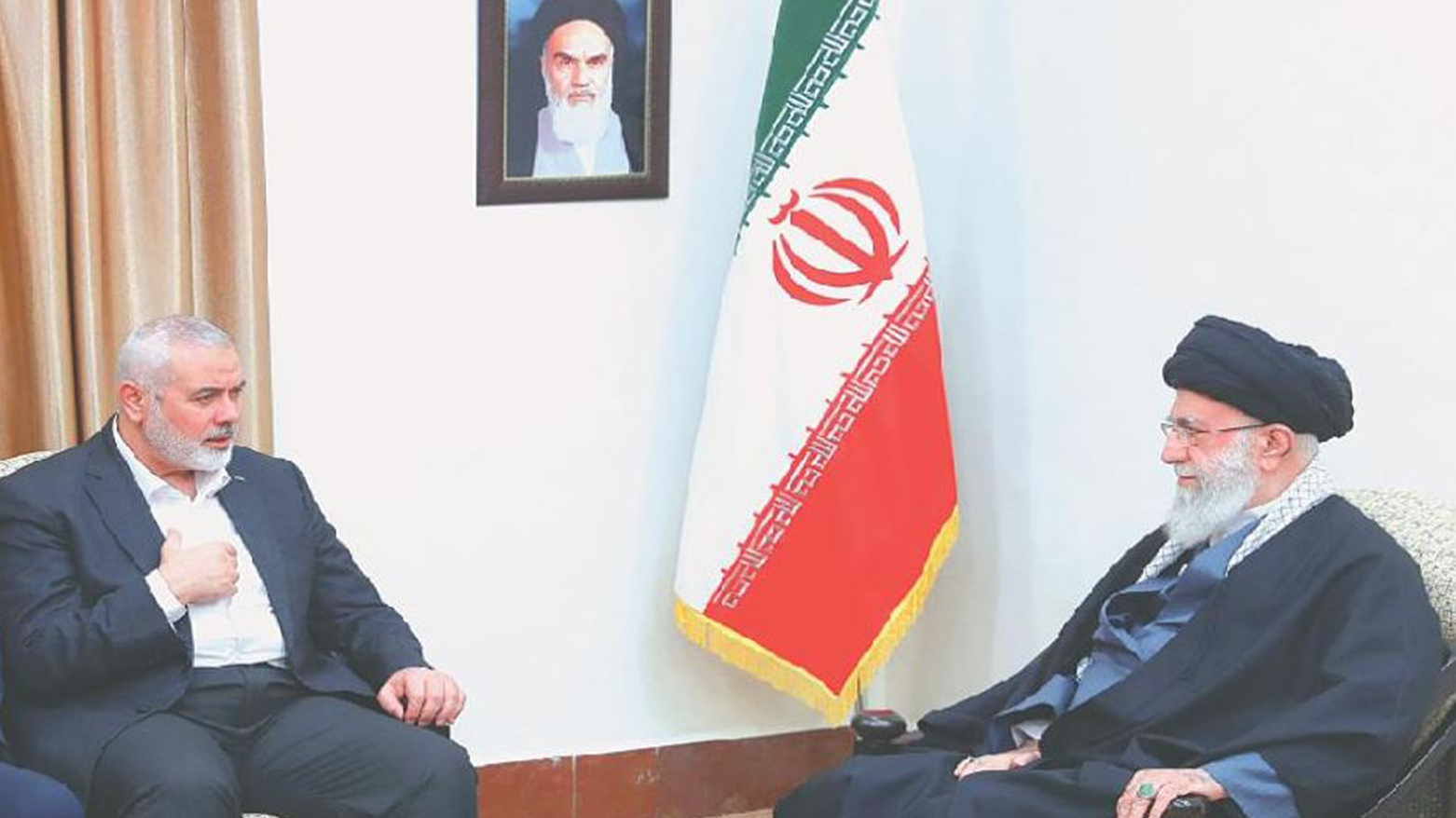Iran Sending Arms to West Bank Palestinians: New York Times
The smuggling of weapons from Iran to the West Bank began about two years ago, the Times reported.

WASHINGTON DC, United States (Kurdistan 24) – Iran is smuggling weapons “across the Middle East, employing intelligence operatives, militants and criminal gangs to deliver weapons to Palestinians in the Israeli occupied West Bank,” The New York Times reported on Tuesday.
The goal, the Times said, citing three Iranian officials, “is to foment unrest against Israel by flooding the enclave with as many weapons as it can.”
The Times is one of America’s top newspapers. As such, its report should be seen as quite credible, although it might also be noted that U.S. standing is also hurt by the violence between Israel and the Palestinians.
Indeed, that is consistent with the observation of Washington’s highly-regarded Institute for the Study of War: “Iran and its so-called ‘Axis of Resistance’ are exploiting the Israel-Hamas war to support their objective of expelling U.S. forces from the Middle East.”
The Times’ report also raises questions about Iran’s denial of foreknowledge of Hamas’s October 7 assault on Israel or even of support for that attack.
Iran Arms Smuggling—Goes Back Two Years
“Many weapons smuggled to the West Bank largely travel along two paths from Iran through Iraq, Syria, Lebanon, Jordan, and Israel,” the Times reported.
Various groups participate in the smuggling, underscoring how widely different elements can work together, when they share a common goal.
Those involved, according to the Times, include “extremist militants,” as well as intelligence operatives, organized criminal gangs, soldiers, and Bedouin smugglers, responsible for the last leg of the route, from Jordan into the West Bank.
Fatah, the largest Palestinian group in the West Bank and the dominant party in the Palestinian Authority, has poor ties with Iran and rejects its interference in Palestinian affairs, which it sees as harmful to the Palestinian cause.
Last Wednesday, Fatah issued a statement saying it would not allow “our sacred cause and the blood of our people” to be exploited by outside powers, as Reuters reported.
Two days earlier, on April 1, Israeli warplanes had attacked a meeting in Damascus of Iranian military leaders and members of Palestinian Islamic Jihad (PIJ), the Times said.
Those killed included Gen. Mohammed Reza Zahedi who commanded the Qods Force of the Islamic Revolutionary Guard Corps (IRGC-QF) in Lebanon and Syria.
In that position, Zahedi had been in charge of Iran’s covert operations in those two countries, which include one of Iran’s major arms smuggling routes.
And the week before, on March 26, “Israeli forces struck a key node of the smuggling route in eastern Syria,” The Times reported. That was the strike in Deir Ezzor which killed nine pro-Iranian fighters, including an IRGC commander.
Those targeted, the Times explained, were members of two Iranian intelligence divisions involved in the arms smuggling: Division 4000, part of the IRGC, and Division 18840, part of the IRGC-QF.
“Days before” Israel attacked the Iranian embassy building in Damascus, “Iran’s supreme leader, Ayatollah Ali Khamenei, gave his personal seal of approval” to Palestinian actions against Israel, meeting with Hamas’s Ismail Haniyeh, and PIJ’s Ziyad al-Nakhalah, the Times said,
Did Iran Know in Advance of Hamas’s October 7 Attack? Did Iran Support it?
Iran’s smuggling of weapons to the West Bank “began about two years ago, when Iran started using routes previously established to smuggle other contraband,” the Times reported.
It would seem logical, then, that Iran would have provided similar support to the Palestinians in Gaza, particularly Hamas, which has close ties with Tehran. After all, why should Iran have restricted its arms smuggling to Palestinians in the West Bank alone?
Indeed, if Iran had supported Hamas in its brutal October 7 assault, that would help explain how it could have been so lethal: 1,200 Israelis killed, with another 253 seized as hostages.
Indeed, Behnam Ben Taleblu, a Senior Fellow at the Foundation for Defense of Democracies, tends toward this view.
“Iran’s ongoing attempts to break into the West Bank by smuggling arms and destabilizing Israel’s eastern front raise serious red flags over both the regime’s denials about its involvement in the October 7 terrorism attack against Israel as well as the intelligence community’s claims about Iran’s non- involvement,” Ben Taleblu told Kurdistan 24.
He also cited a key point that few others have observed.
“What raises red flags even further,” Ben Taleblu added, “is that Iranian media outlets have claimed that Gen. Zahedi,” who was killed in Israel's April 1 strike in Syria, “in fact, had a role in Hamas’s attack.”